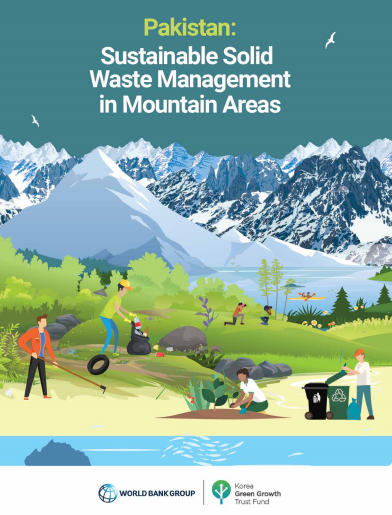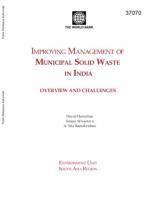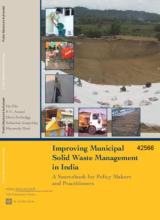
-
Country/City
Pakistan
-
Topics
Technology, Management, Recycling, Disposal
-
Published On
January 1, 2021
-
Author(s)
The World Bank, Rahat Jabeen, Pyush Dogra, Drona Raj Ghimire, Naysa Ahuja
There are many challenges to the ecology and environment of Pakistan, one of them being the growing volume of solid waste due to increasing population, urbanization, and industrialization. The mountainous regions of Pakistan offer some of the most spectacular and fascinating landscapes and ecology in the world, attracting many domestic and foreign tourists; they, thereby, offer these regions an opportunity to develop their local economies. This study recommends that solutions need to be steadily built on a framework in order to successfully and sustainably manage mountain waste. This report presents various recommendations and implementable actions that may be adopted in a phased manner in order to overcome solid waste management (SWM) challenges faced in mountain areas. This study represents the first attempt of the World Bank to examine SWM issues in these unique, ecologically fragile areas that face concurrent challenges of high poverty and increasing pressures from tourism development. Chapter one gives introduction. Chapter two discusses the current landscape of the SWM sector in Pakistan. In chapter three, the report investigates the current situation regarding SWM in the mountain areas of Pakistan. Chapter four looks at the complexity of managing solid waste in mountain areas as well as the various challenges and opportunities that arise. Chapter five presents a framework or foundation on which solutions can be steadily built. In conclusion, chapter six briefly summarizes the role of the World Bank in the SWM sector and how it can provide support to clients to improve SWM services and practices in mountain areas in the South Asia region and elsewhere.



